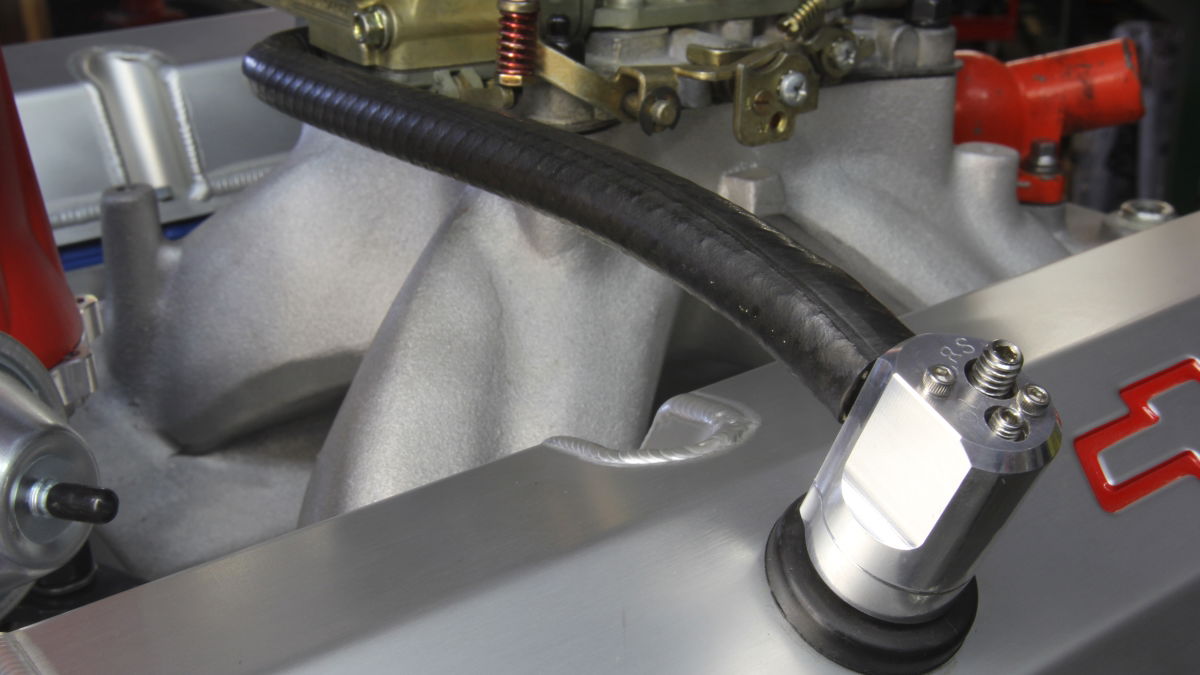What Is 'Rev Hang' And Why Do Petrolheads Hate It?

When you dip the clutch in a car, the revs will drop. This is due to the inertia of the flywheel, and the lack of air going in the intake as the throttle is release. After the gear change is over and the clutch is released, the engine speed will go back up again, meeting the transmission speed.
However, rev hang is when the engine speed doesn’t immediately drop once the clutch is actuated, and instead descends very slowly, as if there were some form of restriction. In extreme cases the engine speed will even rise slightly when the engine and transmission are disengaged.
This obviously isn’t ideal for changing gear. If the engine speed doesn’t drop enough during the process of dipping the clutch, changing gear and then releasing the clutch, the engine speed and the rate at which the flywheel is rotating will be much higher than the speed that the friction plate is rotating at.
This creates a horrible jerk as a braking force occurs when the powertrain and transmission are reengaged and forced to spin at the same speed. This can be frustrating if you’re wanting to perform a quick, slick gear change, as you have to wait for the revs to drop to a reasonable level before upshifting to the next gear to avoid stunted progress.
The cause of rev hang can be put down to the war on emissions. Recently, manufacturers have been intentionally implementing rev hang within ECU programming to save themselves from a potential emissions scandal. When the throttle is released and the clutch is dipped, an ECU with rev hang is programmed to leave the throttle slightly more open than usual.
This strategy is used because it was found that suddenly closing the throttle produced a sudden spike in gas pressure within the crankcase which emphasised the rate of oil vaporisation, thus adding to emissions from the engine. Also, when the throttle is suddenly shut, the fuel mixture suddenly becomes lean which creates NOx (oxides of Nitrogen) which also contributes to emissions.
By keeping the throttle open for a small period of time after the pedal had been released, this pressure spike was avoided and cleaner emissions were achieved. Found most prominently in US-spec vehicles to meet the emission rules over the pond, this pre-programming has frustrated many owners since its development. Rev hang can even be found in Subaru’s WRX STI, along with prominent cases in VW and Hyundai products.
To help eradicate this high pressure within the crankcase, a PCV (positive crankcase ventilation ) valve is used which can reduce the need for a rev hang system when fully functioning. This PCV valve is used to regulate the pressure within the crankcase that can fluctuate to high levels when gear changes occur. In internal combustion engines, it is inevitable that a small amount of ‘blow-by’ occurs, which is when gases from the combustion chamber seep past the piston rings and travel down into the crankcase. The job of a PCV valve therefore is to remove a proportion of the blow-by fumes away from the crankcase, thus reducing the amount of high pressure gas contained within.
Although an intentional rev hang system would go a long way in saving your oil levels and help your car sail through an emissions test, most petrolheads only see it as a hindrance to their driving pleasure. With a quick reprogramming of the throttle body control codes and a bit more competence when it comes to checking oil levels, rev hang can be eradicated and your gear changes can be as smooth and as quick as you desire.
Do you have a car that features rev hang as a setting within the ECU from factory? Let us know your experiences!







Comments
Is it possible that my Opel Astra 1.7dti 2002 has the rev hang feature because it does drop very slow and sometimes even rises a bit :o
I had a 2013 Corolla sport that used to increase rpm every time you engaged the clutch. It made it very difficult to make smooth gear changes.
That’s crazy, something I never even knew about. I guess the best solution for manufacturers might be to program the rev hang selectively so that it only happens when the car isn’t being driven that hard.
My 2013 Dodge Dart 1.4T has this crap too! Absolutely hate it. It’s not a big deal when you are just normal cruising about, but you start to notice it during spirited driving, and even more if you are sitting still and want to give a quick rev. And please, those Subaru examples are nothing compared to how bad mine is.
I’m sorry but I will not take advice from a dude that’s driving a Civic barefoot.
My Maruti Suzuki Esteem rises the RPM and then falls just as quick before I shift! I love my car!
1.0 ecoboost rev hangs alot
I have a 2016 WRX, can confirm rev hang. It’s mostly between first and second, though. Immediately noticeable when I switched from my FR-S.
You could say that the revs were depressed and hung themselves! Get it? Rev hang?
Yeah, that was terrible.
I have a 2012 Kia Sportage with 6-speed manual that does it… makes it look like i can’t shift when trying to go faster…
Pagination